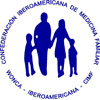Evidence-based guideline: quality of care strategy in primary care
Resumo
Introduction: The development and implementation of Evidence-Based Guidelines (EBG) is one of the promising and effective tools for improving the quality of care. There is a need to define the framework for deciding the effectiveness to develop and introduce clinical guidelines for patients with diabetes and hypertension. Primary health care is the setting in which this care is most likely provided.
Objective: To identify effective strategies of EBG implementation on hypertension and diabetes in a Primary Health Care setting.
Methodology or experience description: A literature review was carried out and the MESh terms were implementation, guideline, hypertension, diabetes and Primary Health Care. Medline, Cochrane Controlled Trial Register, Embase and specializes register of the Cochrane Effective Practice and Organization of Care (EPOC) group were used as data base sources. Analysis were performed to compare different types of intervention in Primary Health Care.
Results: There were 973 articles identified in all databases and 19 had been selected to review in full text. The implementation of EBG is likely to improve the process of care in diabetes and hypertension, rather than patient outcomes.
Conclusions or Hypothesis: In order to improve health care, decision-makers and health professionals need to integrate several approaches on the management of hypertension and diabetes, such as: patient-centered care and non pharmacological approach.
Palavras-chave
Texto completo:
PDF (English)Apontamentos
- Não há apontamentos.
Este periódico é de responsabilidade das associações:
Apoio institucional:







